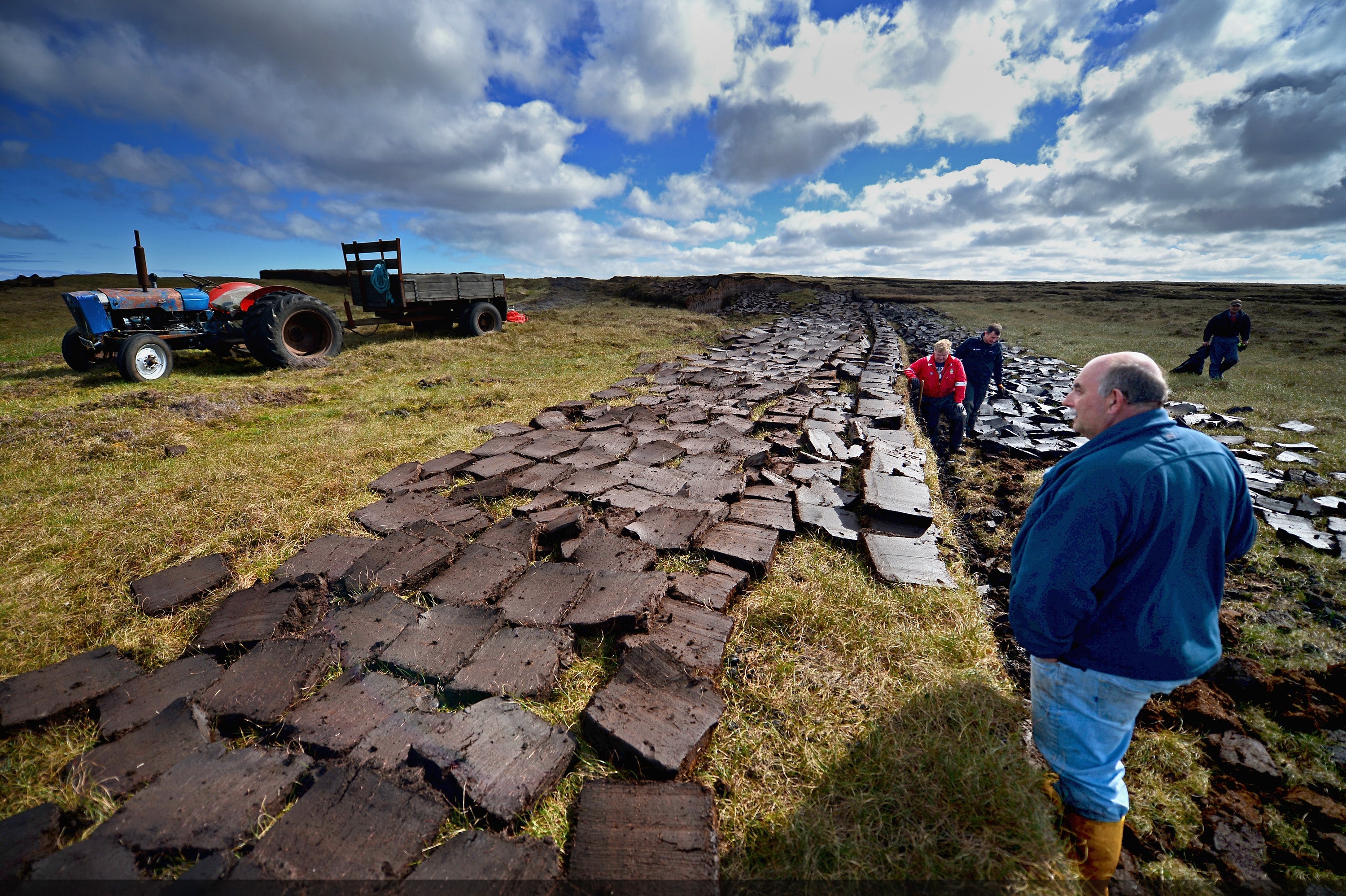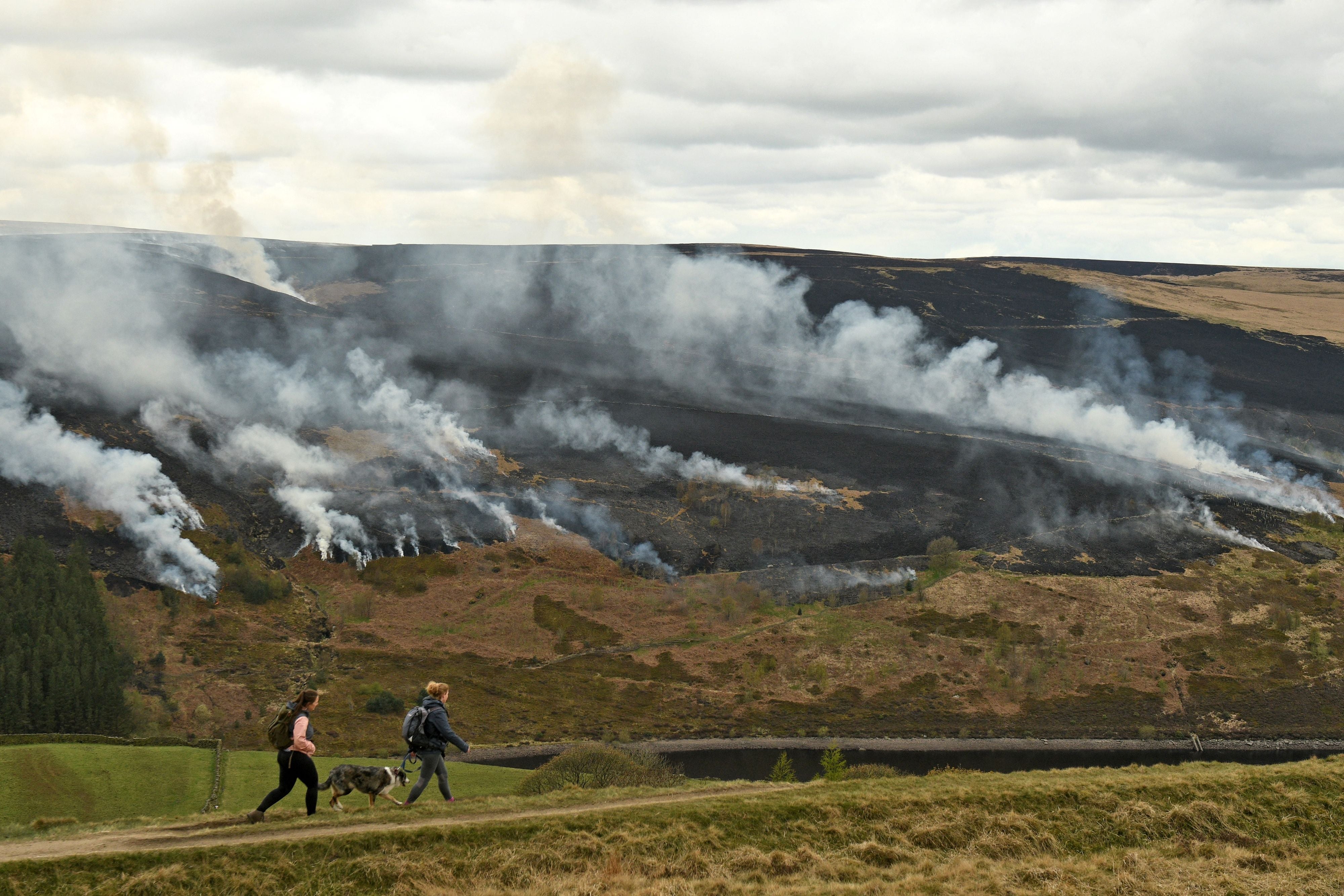Ban on sale of peat compost to gardeners should be brought forward, campaigners say
‘Retailers have delayed and failed to act as promised’ over previous deadlines, says Wildlife Trusts

Your support helps us to tell the story
From reproductive rights to climate change to Big Tech, The Independent is on the ground when the story is developing. Whether it's investigating the financials of Elon Musk's pro-Trump PAC or producing our latest documentary, 'The A Word', which shines a light on the American women fighting for reproductive rights, we know how important it is to parse out the facts from the messaging.
At such a critical moment in US history, we need reporters on the ground. Your donation allows us to keep sending journalists to speak to both sides of the story.
The Independent is trusted by Americans across the entire political spectrum. And unlike many other quality news outlets, we choose not to lock Americans out of our reporting and analysis with paywalls. We believe quality journalism should be available to everyone, paid for by those who can afford it.
Your support makes all the difference.A ban on the sale of peat compost to gardeners by 2024 is not ambitious enough and should be brought forward to the end of this year, campaigners say.
The environment secretary confirmed that the sale of peat-based compost to amateur gardeners would be banned, as part of a wide-ranging speech on how the UK plans to tackle the nature and climate crises.
Peatlands have been described as “superheroes of the natural world” for their ability to store vast amounts of carbon, reduce flood risk and support a diversity of wildlife. These water-logged environments cover just 10 per cent of the country’s surface but store around 3 billion tonnes of carbon – triple the amount stored by UK woodlands.
However, centuries of burning, over-draining and over-harvesting have left the country’s peatlands in a poor state, causing them to release more CO2 into the atmosphere than they absorb. Estimates suggest the UK’s degraded peatlands now account for around 5 per cent of the country’s total emissions.
At Delamere Forest in Cheshire on Tuesday, George Eustice said: “Peatlands are our biggest terrestrial carbon store and home to some of our rarest species.
“We will [publish] a consultation in 2021 on banning the sale of peat and peat-containing products in the amateur sector by the end of this parliament.”
However, the Wildlife Trusts, a group of 46 wildlife conservation charities, said the government should commit to ending sales before Cop26, a key set of global climate talks that the UK is hosting in November.
Joan Edwards, director of policy and public affairs at the Wildlife Trusts, told The Independent: “The announcement that the government is going to consult on banning the sale of peat is very welcome, but it’s long overdue. The impact has been known for years, but retailers have dithered and delayed and failed to act as promised.
“The time for procrastination is over, and we urge the government to get on with the consultation as soon as possible, and make sure the sale of peat to gardeners is banned before the UK hosts the global climate conference Cop26 in Glasgow in November. We can’t afford to wait until 2024 for sales to end.”
Back in 2011, the government announced a voluntary target for phasing out peat use by gardeners by 2020 – an ambition it did not come close to meeting.
“A decade ago ministers pledged to end peat sales by 2020, but they must now hit their new 2024 target date and not let things drift again,” said Paul de Zylva, a nature campaigner at Friends of the Earth.
When asked why the ban could not be brought in any earlier than 2024, Mr Eustice said that a period of time was needed to hold a consultation on the new legislation and to “allow for industry to adjust” to the changes.
The Wildlife Trusts also called for a more complete ban on peatland burning, a practice common among grouse shooters.

The government this year announced a ban on peatland burning in certain protected sites. But environmental groups recently told The Independent that exemptions to the ban meant that it only applied to 9 per cent of England’s peatlands, leaving large swathes of the UK’s bogs at risk of further degradation.
Among his announcements, Mr Eustice also pledged £50m to restore 35,000 hectares of peatland – about 1 per cent of all bogs – by 2025, as well as £500m in a bid to triple tree-planting rates in England to 7,000 hectares a year by 2024.
However, campaigners described both of these measures as repeats of old commitments.
“The government needs to set a much more ambitious long-term tree cover target that matches the scale of the climate and nature crisis,” said Danny Gross, trees campaigner at Friends of the Earth.
Matt Williams, climate and land programme lead at the Energy and Climate Intelligence Unit (ECIU), a non-profit organisation based in London, added: “Plans to restore 35,000 hectares of peat are important commitments, but don’t go further than previous government announcements.”
Further measures confirmed in Mr Eustice’s speech include a commitment to set a legally binding target for halting nature loss in the Environment Bill, a long-awaited set of proposals for improving the UK’s natural environment post-Brexit.
Mr Eustice also confirmed plans to introduce a “species reintroduction taskforce” to help bring animal populations back from the brink. Details of the scheme will be announced later this year, he said, but could include measures to boost beaver numbers and reintroduce lost animals such as wildcats.
Join our commenting forum
Join thought-provoking conversations, follow other Independent readers and see their replies
Comments